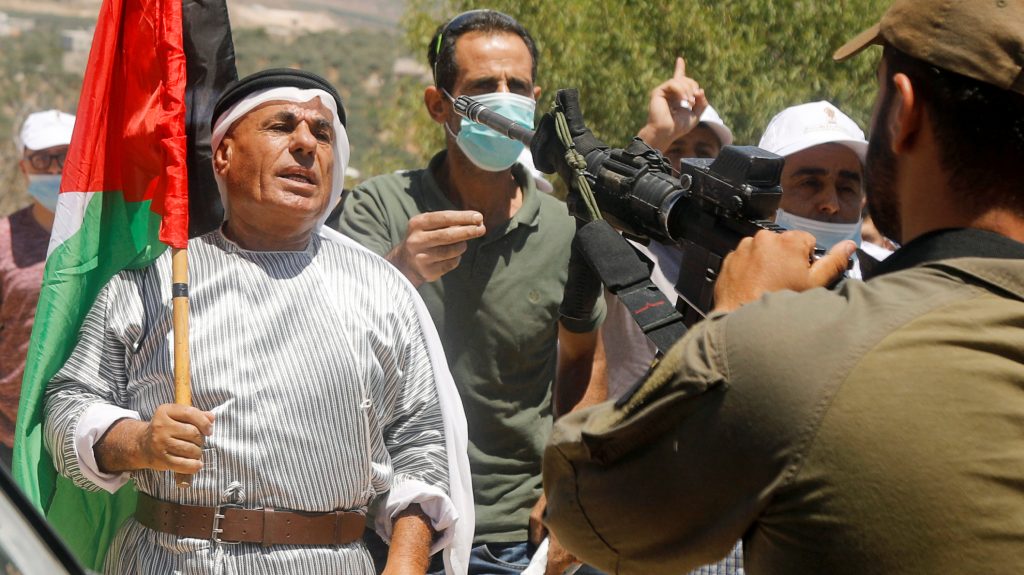The threatened Israeli annexation of territory in the West Bank and the Jordan Valley could be "the final straw" for a viable Christian presence in Palestine, said a group of local Christian clergy.
"For Palestine, Bethlehem and particularly for its Christian population, this new process of annexation will be particularly catastrophic," priests from the Roman Catholic, Melkite Catholic, Greek Orthodox and Lutheran communities of the Bethlehem area said in a statement released July 7.
Since 1967, Israel has annexed about 5,000 acres of land -- some of it privately owned -- in northern Bethlehem and the adjacent villages of Beit Jala and Beit Sahour. The religious leaders said the capacity for the communities to expand according to the needs of their natural growth has been "severely hindered."
On the western border the Cremisan Valley and al-Makhrour Valley are the last areas left for expansion and enjoyment of nature, but these are under threat by the annexation, the priests said. A Salesian monastery and school and located in the area targeted in the Cremisan Valley, and land farmed by parishioners for generations is also in danger.
In the east, people fear land belonging to Beit Sahour will be annexed.
"Our biggest concern is that the annexation of those areas will push more people to emigrate," the clergy said. "Bethlehem, surrounded by walls and settlements, already feels like an open prison. Annexation means the prison becomes even smaller, with no hopes for a better future.
"We feel the burden of history upon our shoulders to keep the Christian presence in the land where it all started," they added.
In the meantime, with Israel and the Palestinian Authority grappling with a second wave of COVID-19 cases and Israeli procedural matters required for annexation yet to be completed, it seems unlikely that any action will be taken in the near future.
On July 7, the Israeli paper Haaretz reported 1,137 new cases in the previous 24 hours. Israeli Prime Minister Benjamin Netanyahu has reimposed safety measures, including closing bars, gyms, pools and event venues, and restricting the number of people on public buses and in restaurants and places of worship.
The Palestinian Authority imposed a complete closure July 3, currently set to be lifted in mid-July. It announced 472 new cases July 6 and called on clans and families to adopt a binding code of honor that prohibits weddings and mourning tents until the end of the COVID-19 crisis.
While Palestinian Prime Minister Mohammad Shtayyeh blamed Israel for the growing number of cases in the Palestinian Territories because it did not close the border crossings, other Palestinian authorities also criticized Palestinians themselves for not adhering to social distancing requirements and continuing to hold large wedding celebrations and other gatherings.

